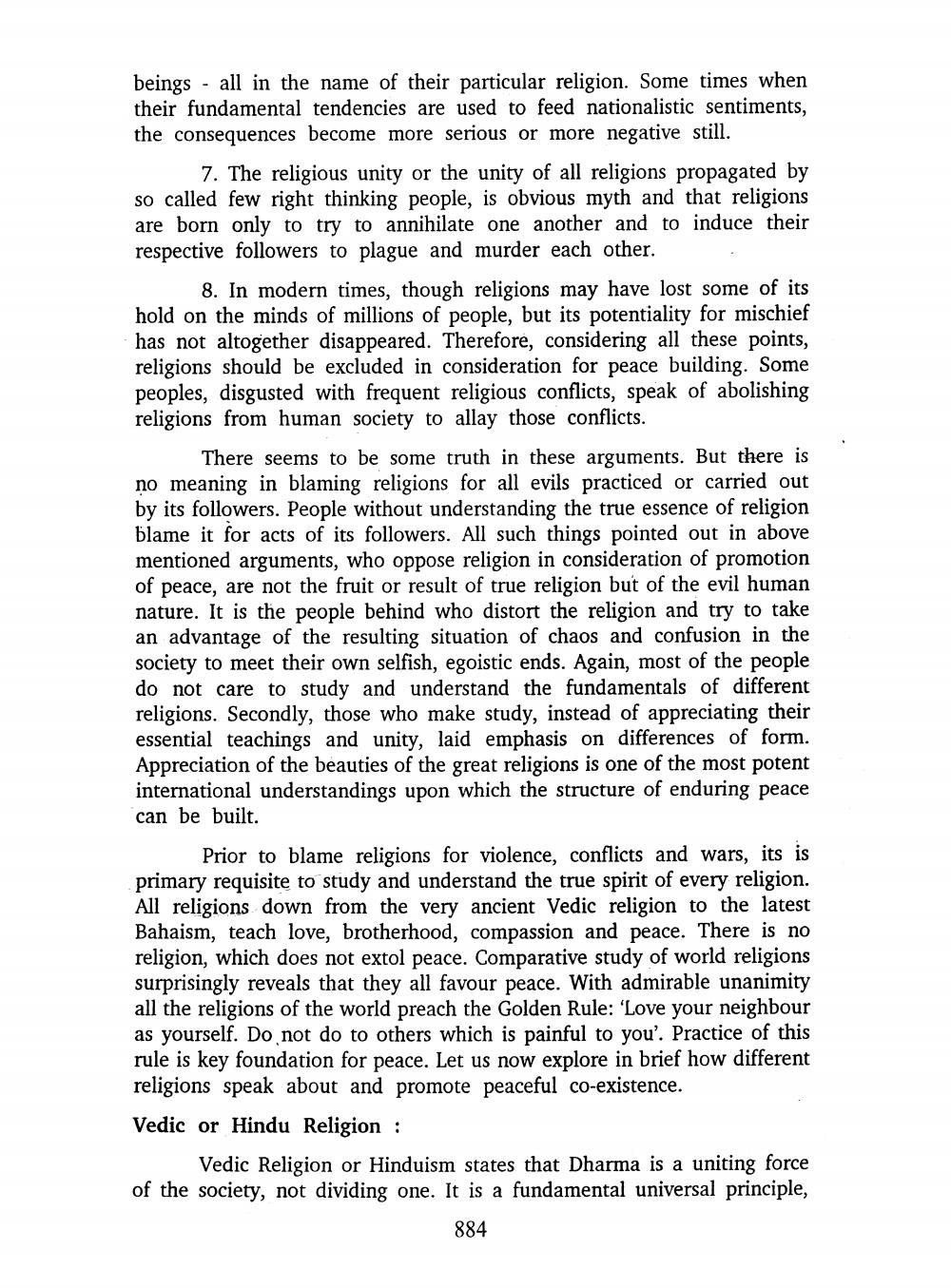________________
beings all in the name of their particular religion. Some times when their fundamental tendencies are used to feed nationalistic sentiments, the consequences become more serious or more negative still.
7. The religious unity or the unity of all religions propagated by so called few right thinking people, is obvious myth and that religions are born only to try to annihilate one another and to induce their respective followers to plague and murder each other.
8. In modern times, though religions may have lost some of its hold on the minds of millions of people, but its potentiality for mischief has not altogether disappeared. Therefore, considering all these points, religions should be excluded in consideration for peace building. Some peoples, disgusted with frequent religious conflicts, speak of abolishing religions from human society to allay those conflicts.
There seems to be some truth in these arguments. But there is no meaning in blaming religions for all evils practiced or carried out by its followers. People without understanding the true essence of religion blame it for acts of its followers. All such things pointed out in above mentioned arguments, who oppose religion in consideration of promotion of peace, are not the fruit or result of true religion but of the evil human nature. It is the people behind who distort the religion and try to take an advantage of the resulting situation of chaos and confusion in the society to meet their own selfish, egoistic ends. Again, most of the people do not care to study and understand the fundamentals of different religions. Secondly, those who make study, instead of appreciating their essential teachings and unity, laid emphasis on differences of form. Appreciation of the beauties of the great religions is one of the most potent international understandings upon which the structure of enduring peace can be built.
Prior to blame religions for violence, conflicts and wars, its is primary requisite to study and understand the true spirit of every religion. All religions down from the very ancient Vedic religion to the latest Bahaism, teach love, brotherhood, compassion and peace. There is no religion, which does not extol peace. Comparative study of world religions surprisingly reveals that they all favour peace. With admirable unanimity all the religions of the world preach the Golden Rule: 'Love your neighbour as yourself. Do not do to others which is painful to you'. Practice of this rule is key foundation for peace. Let us now explore in brief how different religions speak about and promote peaceful co-existence.
Vedic or Hindu Religion :
Vedic Religion or Hinduism states that Dharma is a uniting force of the society, not dividing one. It is a fundamental universal principle,
884




